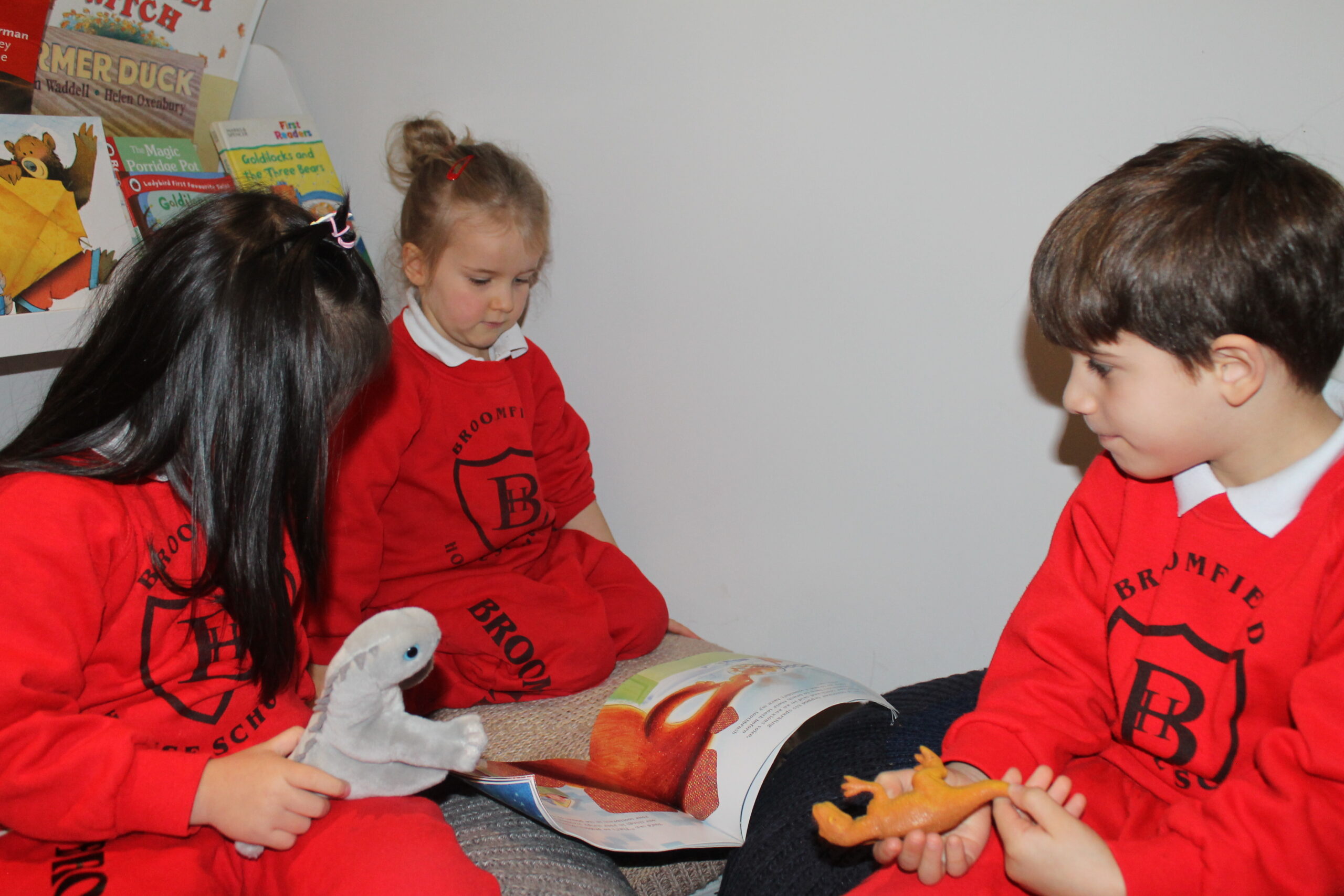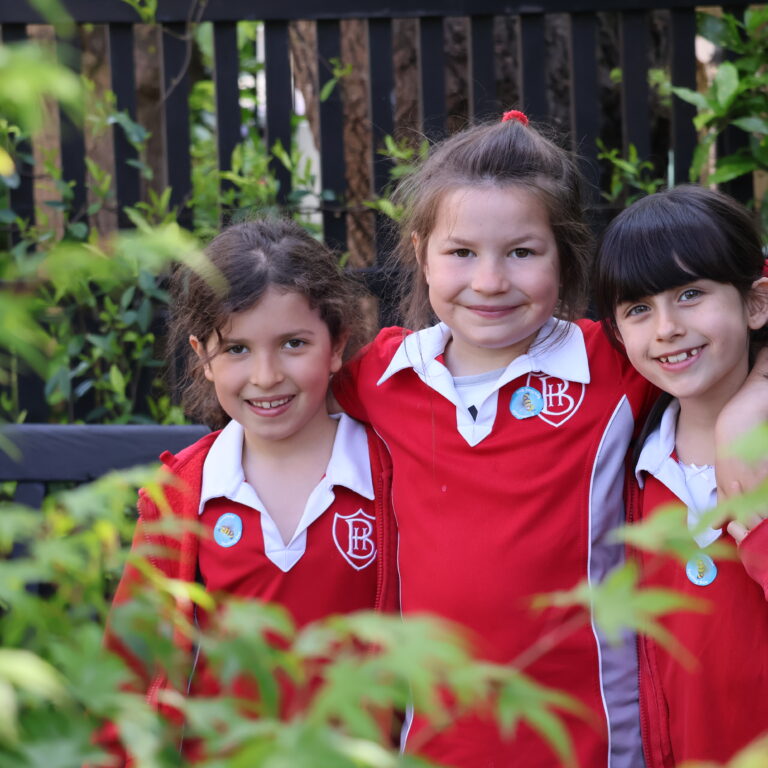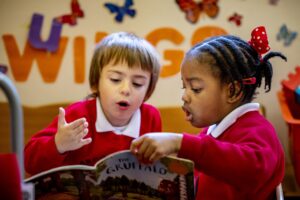“The greatest gifts you can give your children are the roots of responsibility and the wings of independence.” Denis Waitley, Author and motivational speaker
At Broomfield House School, our aims and values underpin all we do to inspire curious learners, independent thinkers and happy children. The children’s early years are a vital period of development, building the platform on which their educational journey will flourish. I compare these years to the roots of a tree growing and stretching out beyond the familiar into new ground. This is the time when they start exploring, discovering interest in and curiosity about the world around them and the part they will play in it. Early Years’ teachers play a significant part in nurturing inquisitiveness and we need to ensure our classroom environment supports this. All the practitioners at Broomfield are focussed on joining up the different stages of education into a seamless whole, to build lifelong skills.
Encouraging children’s independence, allowing them to exercise choice in their activities and some control over their lives is a priority at Broomfield. This develops character and helps children learn about what motivates and inspires them in their learning. We have been researching new ways to strengthen this approach, taking opportunities to study ideas and best practice elsewhere. Our staff have attended courses at Little Dukes Training Academy to research the Montessori approach and, as part of Dukes Education, we have worked alongside other settings, learning from each other, continually looking to provide the best for our children. We focus on an holistic approach, looking at the unique child, creating positive relationships which are supported through an enabling environment.
Celebrating the unique child
The children joining Early Years may be young, but they arrive with their own interests and preferences, which we encourage through play and by offering them individual choices. We work to create an environment which promotes this, in both the indoor and outdoor classroom spaces. The arrangement and storage of resources helps children to develop independent skills and supports self-motivation and resilience.
As practitioners we observe our pupils in their independent play, assessing and planning the next steps for them as individuals. The purpose is to build on that independence, providing new learning opportunities and developing their understanding and skills. Our Pre-Kindergarten class engages in Plan, Do and Review sessions, a kind of project management for little ones. The children make choices about activities to undertake, they plan how to carry them out and then have a go at doing the tasks in their chosen way with peers or individually. Once completed they review what they have done and think about how they have engaged with the activity. This approach builds on the softer skills of speaking and listening, helps to stretch attention span and builds opportunities for reflection.
In Kindergarten, we incorporate this approach more systematically. We discuss our teaching topics at the outset with the children, encouraging them to make suggestions about what they want to find out or learn. We ask questions about what they are doing and why, find out how it is going for them and ask them to consider whether taking a different stance might have changed the outcome for the better or worse.
Building positive relationships
A significant element of the Early Years’ experience is for children to develop social skills, friendships and learn how to express themselves. We create a safe and nurturing environment, one in which children feel confident to express their needs and ideas. Every morning the children are welcomed by the Early Years’ Team, we chat with each child to gauge how they are feeling and help set a positive start to their day in school.
When the children are playing together we observe their interactions and how well they express their needs and desires. We want children to use their own words to describe their feelings so we use story books with them, which are rich in emotional terminology. We support children to manage any disagreements, retreating to a quiet area and asking open ended questions. This helps them work out how to articulate their concerns or emotions and to establish equilibrium, both for themselves and in their relationships with friends.
Establishing an enabling environment
Another key element of any Early Years’ experience is the indoor and outdoor environment. This should provide opportunities for children to explore their own ideas and skills. A significant investment in our Early Years spaces has transformed how our children relate to their surroundings. They are encouraged to explore where different resources can be found and can make independent choices of which to use. We help to develop life skills by letting them take responsibility for putting things back correctly and leaving equipment ready for the next person. They also manage their own possessions, being accountable for putting coats, bags and books away.
The modernisation of our indoor classrooms used neutral and natural materials to support a calming environment. This helps keep the learning resources as their key focus and source of stimulation. We have created spaces where Pre-Kindergarten and Kindergarten can have learning opportunities together, role modelling, sharing ideas and encouraging each other. There is a new shared area, our Cosy Corridor, which has comfy cushions, story books and props to re-tell stories. We have enjoyed giving children self-determination in using this area, choosing when to listen to stories read by different staff members and parent volunteers.
My own motivation, and that of my team, is to make every day fun and interesting so that the children come dancing into school ready to grow in curiosity and creativity. Our arrangements support them to be courageous in trying new things and to be open to new experiences. In these ways they develop confidence in what they do, learn to make independent choices and be strong and positive in their attitudes to life and learning. Our children develop in their own unique way, find out what they love and what motivates them to be the best they can be. Of course, we also love learning from them every bit as much as they learn from us.
Toni Baird
Head of Early Years
Tree photograph courtesy of Jeremy Bishop




